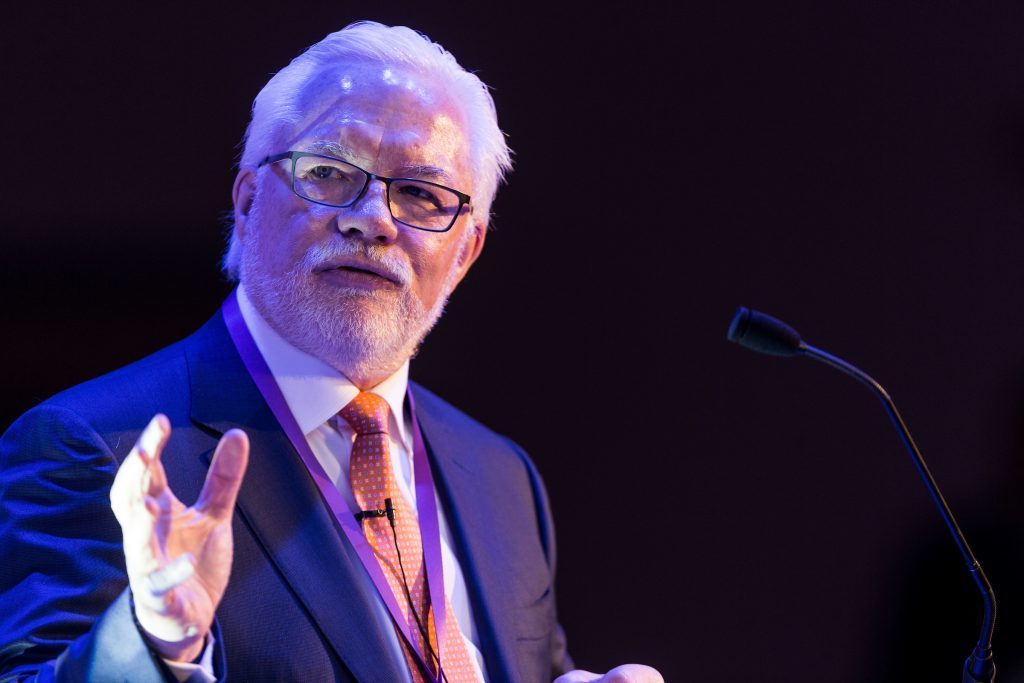
In response to Jeremy Creswell’s opinion on whether ITF, an independent organisation that has delivered more than £80 million of collaborative funding has a future, I’d like to strongly say, yes we do.
And I’d like to point out that our members agree. Premier Oil, which has been a member since 2011, has just announced that it is extending its membership by a further three years. Many members have been with us for numerous years and have directly benefited from the 221 projects launched through ITF and our wide-ranging connections with technology developers.
Chevron Upstream Europe is just one operator who has benefitted from our global scope over their 15 year membership. The collaborative projects we have worked on with Chevron in the areas of subsurface research such as tight rock and seismic imaging have been applied successfully to Chevron’s global portfolio of assets, both onshore and offshore.
In one subsurface project alone – Full Wave Gamechanger – £7.5 million of operator funding (including Chevron, Nexen, Shell and Woodside) was secured, which enabled 100 well placement decisions, amounting to £380 million of value for those members. We don’t have public sector funding, we respond directly to the agenda set by our members and we get results.
Our remit also goes beyond the North Sea. We have a vast international network of over 2500 technology providers spanning 47 countries who rapidly respond to calls for proposals. Australia’s Bureau of Meteorology recently stated that a £2 million research program led by ITF and jointly funded by Shell, Woodside, Chevron, and Inpex will deliver better tropical cyclone forecasts for offshore facilities to improve safety and reduce costs. As Shell said: “The exciting new capability from this joint partnership will allow oil and gas operators to make better-informed decisions much earlier and on a more objective basis than previously possible.” Our projects continue to have a positive effect on the industry across the world.
At Offshore Europe, ITF hosted very successful sessions in the Decom Zone and we had over 120 people attend our free to industry Tech Talk event on the Tuesday evening with CEO and MD level speakers from Fairfield Energy, Decom North Sea and Proserv to name but a few. The event was attended by companies including Wood Group, OGTC, Expro, Petrofac, Premier Oil, Lloyds Register, OGIC, ExxonMobil, OGA, ConocoPhillips, BP, Marathon Oil and TechnipFMC and we shone a spotlight on new decommissioning technologies that can help to drive down costs.
Rather than hark back to long redundant technology organisations that existed a quarter of a century ago as seen in yesterday’s article, I personally think it’s better to focus on the facts of today.
We have worked with over 80 industry partners and continue to provide active stewardship of our projects to ensure they deliver for our members and the wider industry. We have 15 current projects valued at over £7 million, active engagement in nine countries and ITF-facilitated projects are proven to leverage 20 times more private investment. A great example of this is our work with Airborne Oil & Gas on it thermoplastic composite pipe (TCP) technology, which originally received 2 million Euros through a joint industry project to test and demonstrate feasibility. Airborne went on to secure 10 million Euros from Saudi Aramco plus another 13 million Euros from existing shareholders. Airborne has since opened the world’s first large scale TCP manufacturing facility and secured significant contracts. Martin van Onna has been very open about ITF’s role in the company’s early success. “If it wasn’t for ITF, then we wouldn’t be sitting here now,” is taken direct from a recent Airborne case study.
There seems to be confusion that there should only be one oil and gas technology organisation, but I personally think this would deliver less not more for the industry. And that is who we are here to represent. We are working together with the other technology organisations. The CEOs meet regularly. We have agreed roles and remits, and in the UK all four organisations feed into the Technology Leadership Board. And we collaborate on projects.
ITF’s remit is however different from the others. Our members often have interests both in the North Sea and further afield and want to see a global approach. Our members tell us that they want to shape and steer where their investment goes.
As well as facilitating JIP’s, we offer a range of support services and have recently been approached on a commercial basis by companies to help them set up collaborative industry supported projects to develop technology. Our experience and industry connectivity is helping us here. We are just about to kick off an industry landscaping study on the potential for digital technologies to significantly improve production efficiency of our offshore platforms. The work will be delivered to the UK Technology Leadership board and will have the support of the OGA, and the industry led Asset Stewardship and Production Efficiency Task Force groups as facilitated by OGA under the MER UK Forum.
Contrary to Mr Cresswell’s personal opinion, I predict that ITF will be around for a good while yet, as our independent intervention ensures projects are strategic and are targeted directly to meet our members’ needs.
Dr Patrick O’Brien is chief executive at the Industry Technology Facilitator (ITF)
Recommended for you
